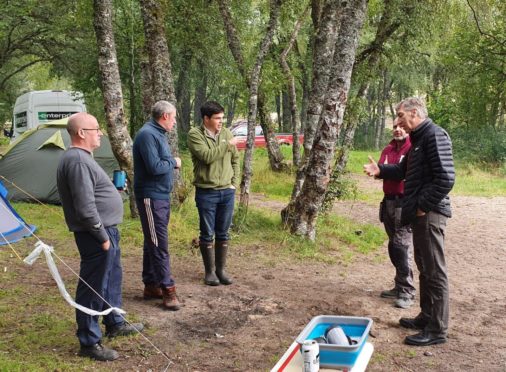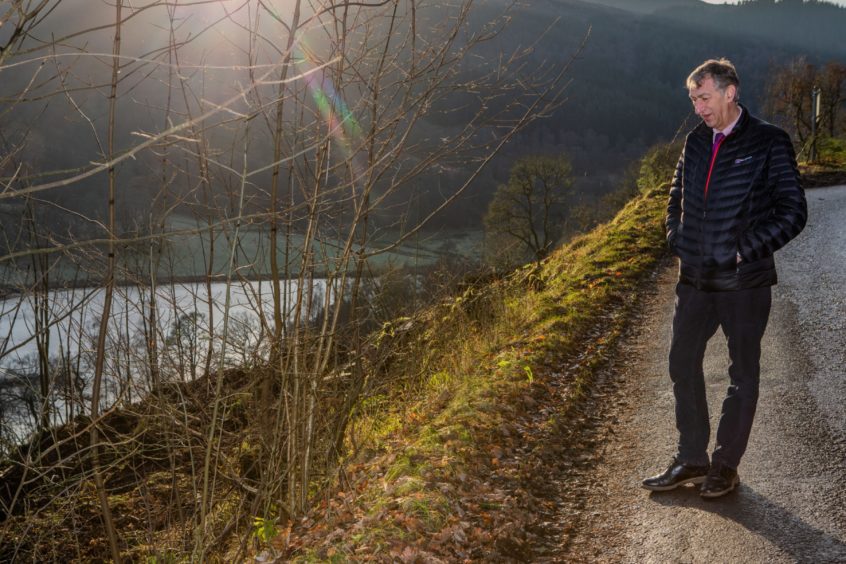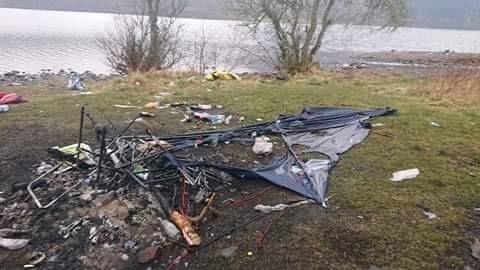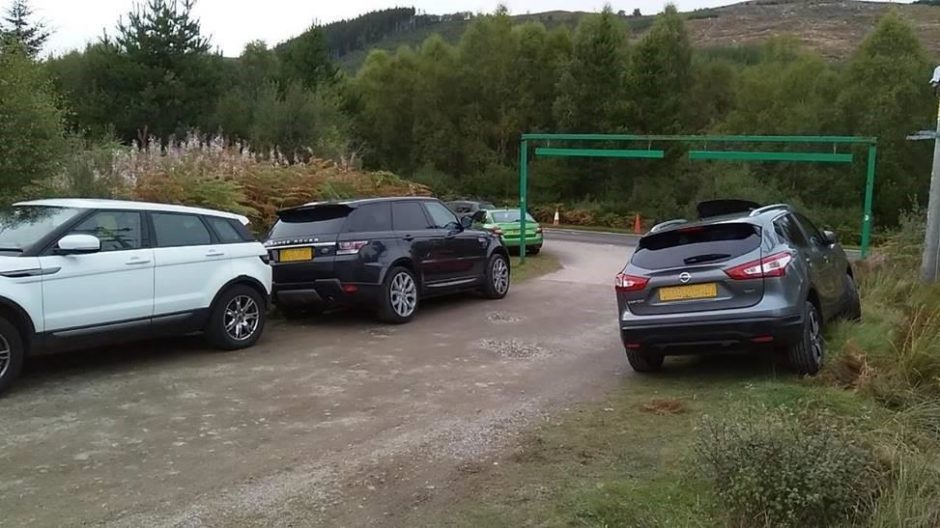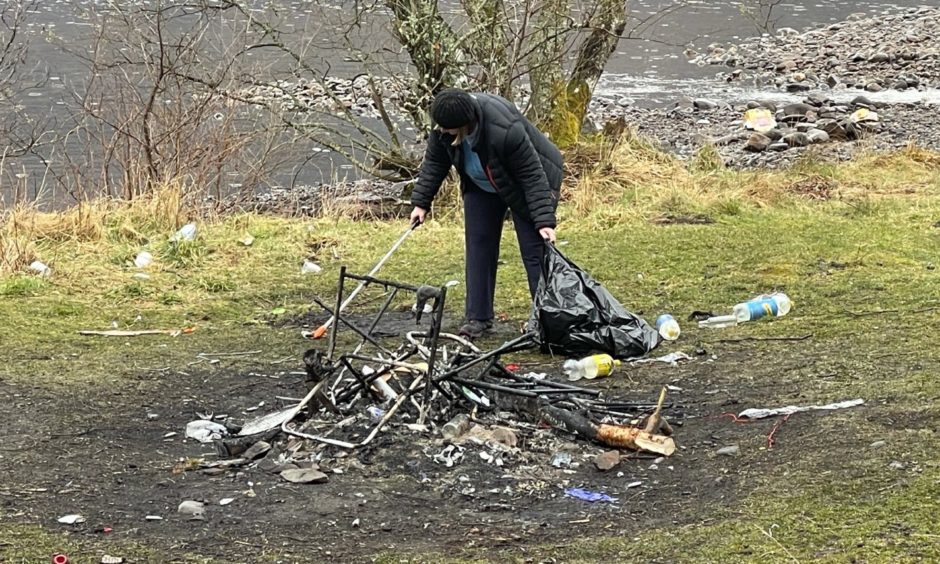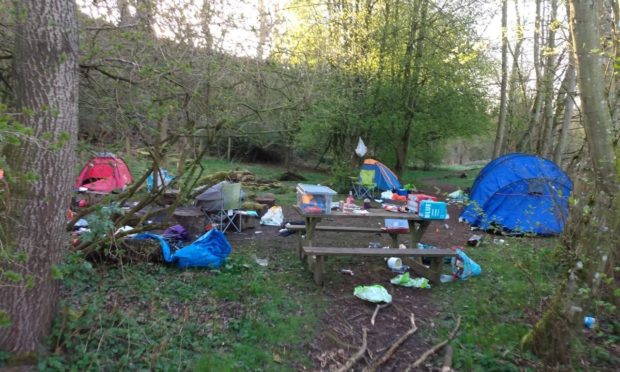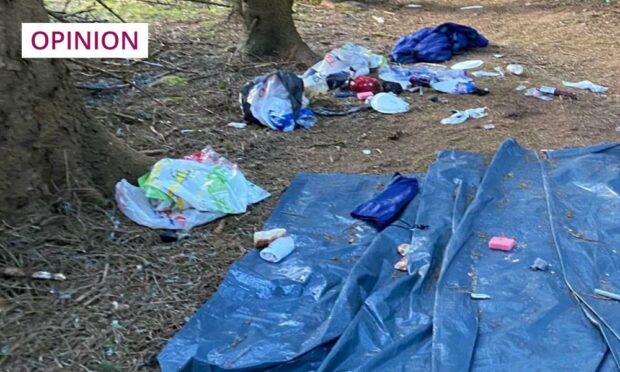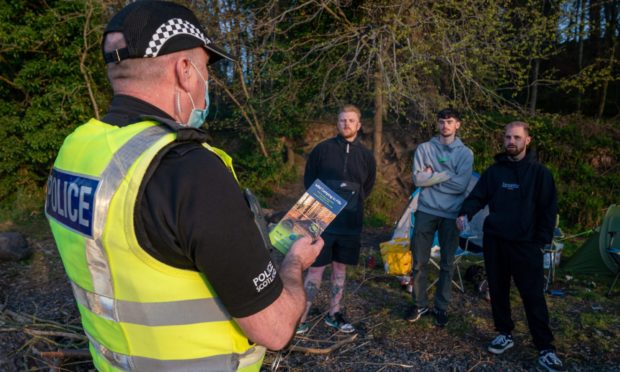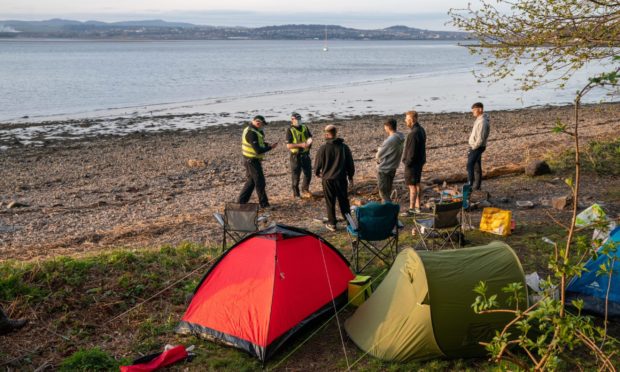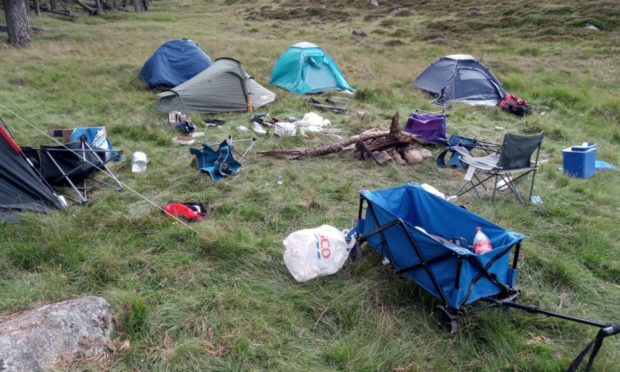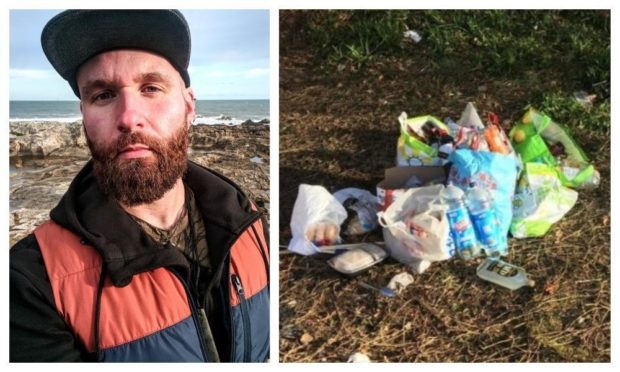In July of last year at the end of the first lockdown literally hundreds of campers and motorhomes descended upon Highland Perthshire.
It was not surprising that many people, freed from the restrictions and forced confinement required by Covid-19 infection control, headed to the great outdoors.
We are only just beginning to understand the long term effects of the pandemic, especially on mental health, and the therapeutic benefits of connecting with nature and the countryside are well documented.
It’s important to state here and now that there is no desire to deny or restrict this vital human need.
In Highland Perthshire, beauty hotspots such as Loch Tummel and Loch Rannoch were virtually overrun.
An influx of people set up camp along the loch shores and this wild camping regrettably degenerated into dirty camping when huge volumes of waste were left in their wake.
This detritus included human waste and discarded camping equipment- now so cheap it can be casually left behind.
Wild camping has been an enduring tradition of those exploring our unique countryside for generations.
They have done so valuing the beauty of the landscape and its wildlife. Their environmental impact was and is negligible and continues to be so.
We need to preserve this tradition with better facilities and monitoring to prevent it from coming under threat from the irresponsible actions of others.
Locals suffered from lack of investment
Staycations are now more popular, particularly in view of the restrictions on foreign travel imposed by the pandemic, and the hospitality industry has responded by improving the range and quality of the offering.
Unfortunately, that same level of investment has not been realised in the touring end of the market.
The impact of all of this on local communities has been considerable.
Local residents felt intimidated by this invasion while landowners were understandably concerned for the welfare of their livestock, forestry and woodlands.
Communities suffered disruption and frustration due to the illegal parking of vehicles which were obstructing access along single track roads, as well as access points to local Munros.
While Covid-19 has highlighted the problem it has been growing for some time and has been exacerbated by the growth in motorhome ownership and the reduction in tent pitches provided by licensed campsite operators.
This last is a consequence of simple economics since licensed sites are able to charge higher fees for static and touring caravans and motorhomes.
Reversing this trend will require intervention from the public sector.
The economy of Highland Perthshire depends upon visitors coming into the area and contributing to the hospitality industry
This could be achieved by incentivising existing campsite operators through subsidies for tent pitches or establishing separate serviced campsites for pitched tents operated by public sector bodies.
The economy of Highland Perthshire depends upon visitors coming into the area and contributing to the hospitality industry in all its diverse forms.
However, visitors need to behave responsibly, respect the rights of local communities and above all observe the Scottish Outdoor Access Code.

There is a balance to be maintained between the right to roam freely and the rights of landowners in protecting their livestock, forestry and more generally the environment.
It is also important to recognise that the code is only advisory and as such relies on the goodwill of everyone involved.
That goodwill is now under severe strain from landowners and local residents in Highland Perthshire.
As things stand this problem is not going away.
To use an ecological term, the carrying capacity of Highland Perthshire to cope with touring campers is under severe strain and requires urgent intervention by all concerned.
We need a concerted response that respects all concerned parties rights and interests and above all does not undermine or diminish the precious Outdoor Access Code.
We need to tackle unacceptable behaviour and address knee jerk responses by landowners which risk breaching the code and are not in themselves sustainable solutions.
Clearly there is a need for improved monitoring and enforcement action, which has the potential to be understood by all parties and is meaningful.
But this needs to be supported by better education which highlights the impact that the excessive behaviour is causing.
There is an argument for more warden activity and enforcement of the code by countryside rangers.
We need investment in new and expanding services and facilities. This could involve financial incentives for existing camping/ caravanning and touring operators to provide more tent pitches.
We also need to address illegal car parking. Clearways and car free zones could be created at popular hotspots. And in order to offset these restrictions there would need to be additional investment in integrated public transport services which cater for visitors, as well as providing local transport needs.
All of this comes at a cost. However, there are clear opportunities to be gained by the public and private sector from investing in new and existing ventures now.
Mike Williamson is a councillor for the Highland Perthshire ward and a member of the SNP group on Perth and Kinross Council.
